Religion
/Health
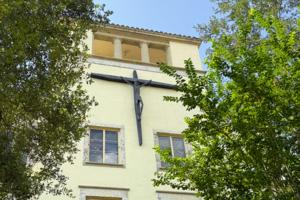
Catholic priest who worked in Orlando faces child abuse accusations, lawsuit
ORLANDO, Fla. — A Catholic priest who worked in Orlando churches for more than a decade faces sexual abuse accusations from sheriff’s investigators and a lawsuit that accuses him of grooming and then abusing a child for years.
Father George Zina, who now works as a pastor at a church in Roanoke, VA, denies any wrongdoing, according to the ...Read more

'Shut it down': Every Sunday, they come to pray outside Alligator Alcatraz
MIAMI — As thunder boomed on an ominous Sunday evening just outside of Alligator Alcatraz, over 200 people — most of them reverends, rabbis, pastors and people of assorted faiths — chanted in unison, “Shut it down” and “This is a preserve, not a prison” as cars and trucks zoomed behind them on Tamiami Trail.
Clergy alternated in ...Read more

After a lawsuit alleging sexual abuse decades ago at Illinois' Maryville Academy, a priest is placed on leave for the third time
CHICAGO — The letter arrived in late July with the tone of the two before it, the ones that announced the Rev. David Ryan, a longtime Chicago-area priest, had been placed on leave amid allegations of child sexual abuse.
This one, like those previous, came with a sense of the somber, an acknowledgment of the severity of the accusations and a ...Read more
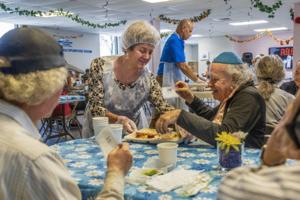
Faith groups push Miami-Dade to rescind cuts to food, social service programs
At 67 years old, Raimundo “Ray” Ricardo is one of the youngest members of a senior center in Miami Beach — but he still shows up almost every morning.
A retired industrial engineer, he found the Diener Family Center on Española Way about a year ago when he sat down for a free lunch. Now the Miami Beach native is a regular member and a ...Read more
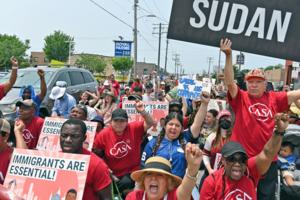
Gov. Moore partners with faith leaders to bridge Maryland's deepest divides
BALTIMORE — When Heather Miller Rubens and Lora Hargrove met for the first time this year, they agreed they were doing so at a time of extraordinary dividedness, particularly for religious leaders.
Immigration, abortion and LGBTQ+ rights had long since split Americans into separate, often angry camps. Racial and economic inequality were well-...Read more

Third hearing set for Baltimore Archdiocese abuse survivors to share stories
Victims of child sexual abuse linked to the Roman Catholic Baltimore Archdiocese will have a third chance to be seen and tell their stories.
On Monday, Judge Michelle Harner ordered a two-hour status conference for Oct. 6 at 1 p.m., meant to raise awareness of and understanding for sexual abuse victims of the Baltimore Archdiocese.
In February...Read more

Judge rules on former Idaho state senator's lawsuit to get reimbursed for religious lessons
BOISE, Idaho — A court has dismissed a lawsuit by a former state senator against the Idaho Department of Education that accused the department of infringing on his family’s freedom of religious expression.
Chris Trakel, a former senator from Caldwell who helped advocate for bills that would have allowed families to use taxpayer money for ...Read more

Pope Leo calls for release of gang hostages in Haiti amid changes on security front
Pope Leo XIV is calling for the release of eight hostages in Haiti, including a 3-year-old boy and a longtime Irish missionary who remain in captivity after being abducted from a mountaintop orphanage by armed gangs in the middle of the night.
“I make a heartfelt appeal to all responsible parties to release the hostages immediately,” the ...Read more
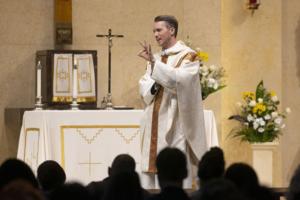
Faith and nonprofit leaders fear IRS change could inject politics into churches, charities
MINNEAPOLIS — For nearly 70 years, a little-known tax code provision has served as a firewall between U.S. politics and its nonprofit sector.
Now, Minnesota nonprofit leaders say that wall is showing cracks — and if it falls, public trust could collapse with it.
At issue is the Johnson Amendment, a 1954 law named for then-Sen. Lyndon B. ...Read more
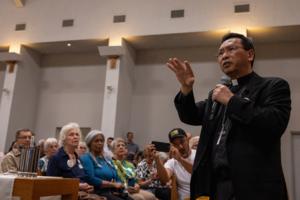
San Diego religious leaders launch effort to accompany immigrants to court amid Trump crackdown
SAN DIEGO — The message for the dozens of volunteers who would soon be supporting immigrants at their court hearings was clear.
“We’re not there to obstruct or prevent any arrest,” said the Rev. Hung Nguyen, associate pastor of Our Lady of Guadalupe Church in Logan Heights. “We’re there to accompany people.”
The orientation ...Read more
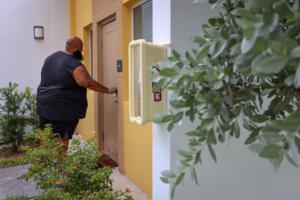
Faith-based affordable housing. How religious groups are helping ease Miami's housing crisis
MIAMI -- The past two years have been rough for Christopher Saunders.
Saunders, originally from Ohio, moved to North Miami Beach in 2023 seeking a warmer climate to relieve his arthritis. Things were going fine, until costly car and rental bills forced him into chapter 13 bankruptcy. Around the same time, the rent on the 43-year-old’s less-...Read more
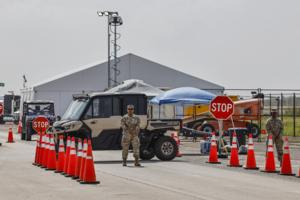
Catholic Church cleared to hold Mass at Alligator Alcatraz after months of waiting
MIAMI — After months of requesting permission to hold religious services at Florida’s controversial detention center for migrants in the Everglades, the Archdiocese of Miami finally got an answer.
“I am pleased that our request to provide for the pastoral care of the detainees has been accommodated,” said Archdiocese of Miami Archbishop...Read more
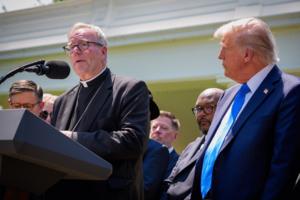
Trump administration now lets federal workers spread religion at work. Faith groups react
New guidance from President Donald Trump’s administration outlining how federal employees may engage with faith practices in the workplace garnered mixed reactions from religious groups, with some raising concern about the blurring boundary between church and state.
The guidelines, announced by the U.S. Office of Personnel Management in a ...Read more
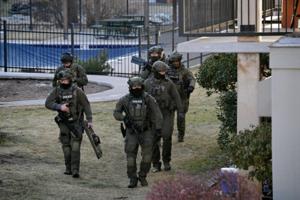
'Un-American' ICE raids on sacred spaces must end, says suit by religious groups
Eleven religious groups are suing the Department of Homeland Security in response to a Trump administration policy reversal ending a decades-long practice protecting houses of worship, schools and hospitals from immigration officials looking to enforce action.
The lawsuit, filed July 28 by Democracy Forward and the Washington Lawyers’ ...Read more
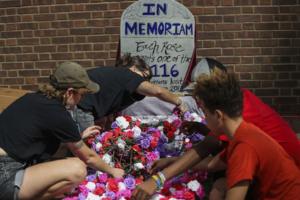
Safehouse nonprofit can argue that its founders' religious beliefs give them a right to open a supervised injection site, appeals court rules
PHILADELPHIA — A federal appeals court ruled Thursday that Safehouse, the nonprofit aiming to open a supervised drug consumption site in Philadelphia, is legally entitled to argue that it has a religious right to prevent overdoses by operating a facility where people can use drugs under medical supervision.
The decision overturns a previous ...Read more
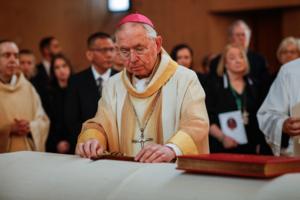
LA Catholic Church to deliver food, medicine to immigrants affected by ICE raids
LOS ANGELES — Amid a wave of arrests and apprehensions of undocumented immigrants, the Roman Catholic Archdiocese of Los Angeles announced plans to bolster delivery of hot meals, groceries and prescription medicines to parishioners living in fear of deportation and ongoing enforcement raids.
The archdiocese’s donation-funded Family ...Read more
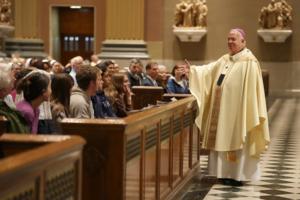
Philly archbishop shares letter urging solidarity with immigrants as ICE arrests soar across the region
PHILADELPHIA — Philadelphia Archbishop Nelson Pérez has released a letter calling for solidarity with immigrants, as ICE increases its enforcement in Pennsylvania and New Jersey.
“You are not alone. The Church is a community of faith, and the divine person of Christ, who was forced to flee his homeland as a child, holds you in his ...Read more
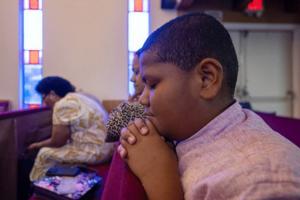
This vibrant Fijian community relies on faith, food and family ties
SACRAMENTO, Calif. -- Joseph O’Connor, pastor of the Sacramento Fijian Seventh-day Adventist Church, doesn’t mind that his congregation meets in a rented space off Arden Way.
On Saturdays, the church is one of many spaces where Sacramento’s Fijian community explores fellowship, food and faith within California’s capital city. Sacramento...Read more
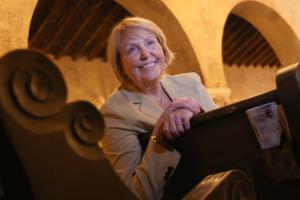
IRS says churches can now endorse political candidates. Miami faith leaders weigh in
The Internal Revenue Services is reversing a long-standing policy and will now allow religious institutions to endorse political candidates without jeopardizing their tax-exempt status — a move that has divided faith leaders and advocacy groups.
Earlier this month, the IRS sided with the National Religious Broadcasters, an evangelical media ...Read more
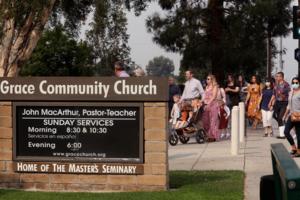
Rev. John MacArthur, influential evangelical pastor of California megachurch, dies at 86
LOS ANGELES — The Rev. John MacArthur, among the country’s most influential evangelical pastors with a prolific media reach — and whose San Fernando Valley megachurch became the face of religious resistance to California’s COVID-19 public health orders — died Monday. He was 86.
MacArthur’s death was announced on the website of Grace...Read more
Popular Stories
- After a lawsuit alleging sexual abuse decades ago at Illinois' Maryville Academy, a priest is placed on leave for the third time
- Faith groups push Miami-Dade to rescind cuts to food, social service programs
- 'Shut it down': Every Sunday, they come to pray outside Alligator Alcatraz
- Catholic priest who worked in Orlando faces child abuse accusations, lawsuit
- Gov. Moore partners with faith leaders to bridge Maryland's deepest divides







